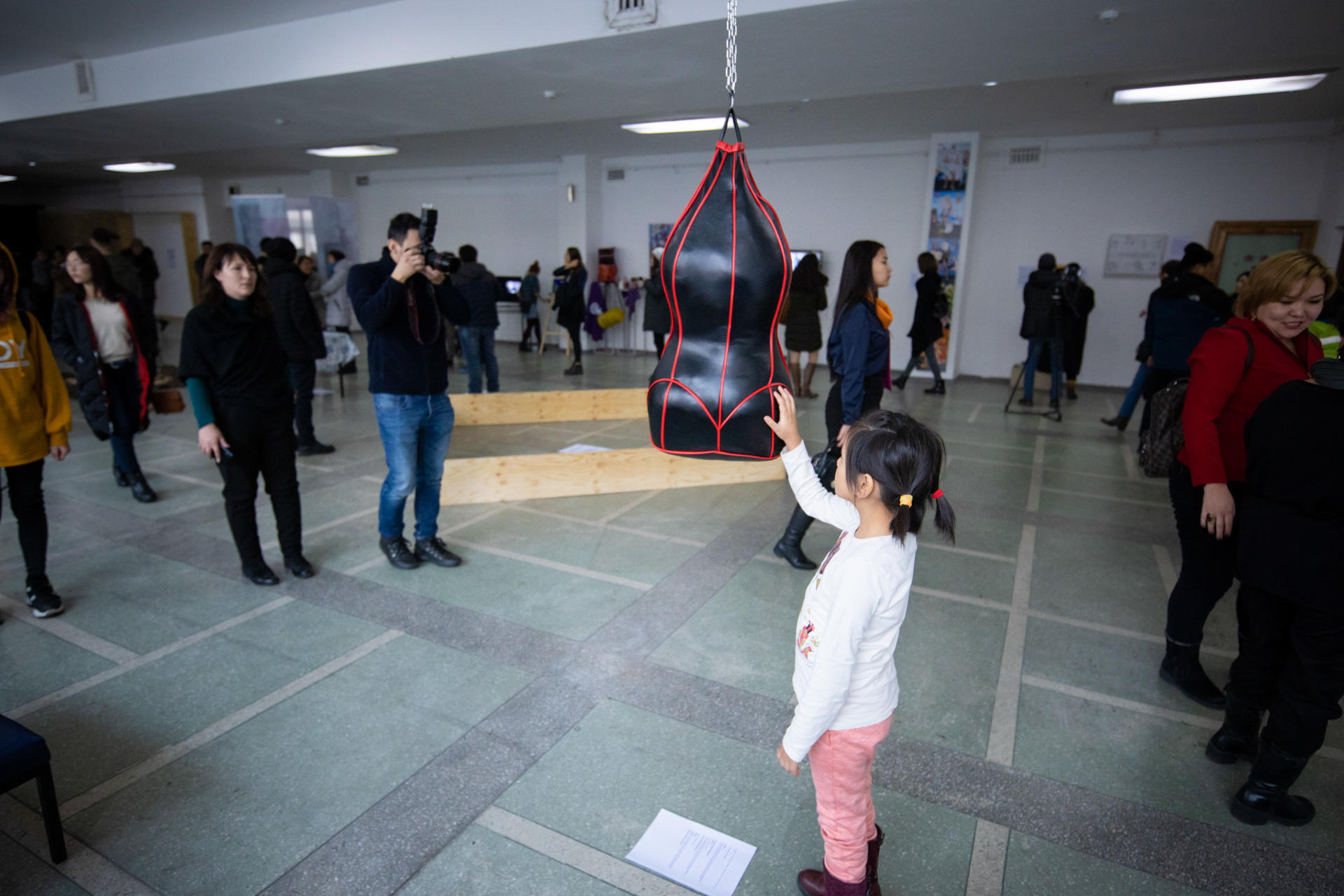Feminnale, the first feminist art exhibition in Kyrgyz Republic, had opened in National Museum of Fine Arts in Bishkek and was attacked by far-right radicals. Participants of the exhibition and the museum staff were subjected to provocative acts, as well as threats of violence and physical altercation. Later, some of the exhibited pieces have been censored by the Ministry of Culture of Kyrgyz Republic.
Adamdar/CA team contacted Altyn Kapalova, the curator of Feminnale, and recorded her words on women’s rights, contemporary art, and the consequences of censorship and terror.
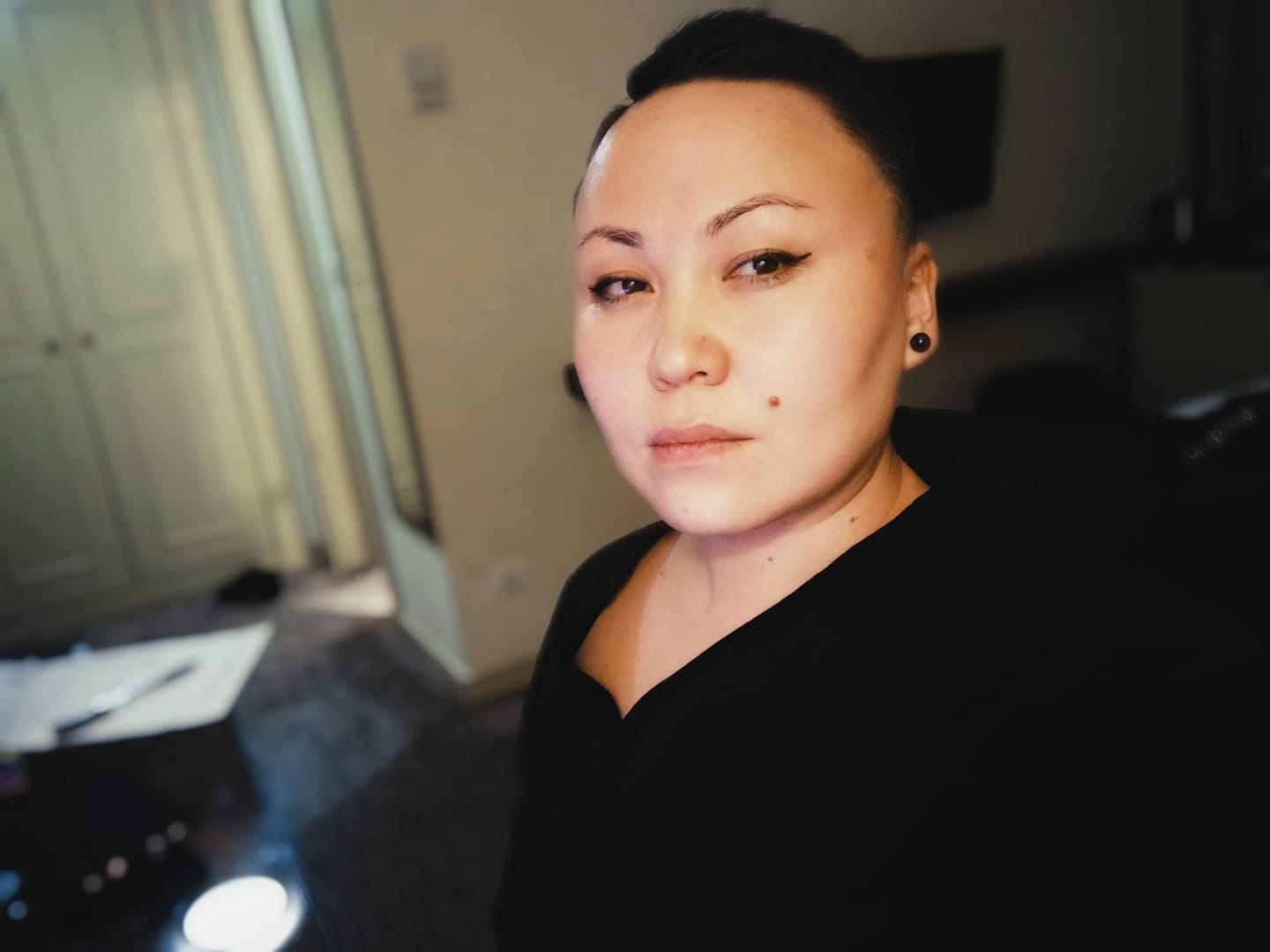
“Women artists from over 25 countries of the planet applied to Feminnale. Works by artists representing nearly 20 countries have been exhibited. We received around 100 applications, a half of which made it to the show.
I am sorry, the numbers may not be accurate. You know, we don’t even have time to bring all the data together. Because Feminnale is a grassroots initiative; it is purely a product of Feminnale team’s internal resources.
the scale of violence against women and children had reached horrifying levels
I think that the issues we raised at Feminnale are relevant and important because the scale of violence against women and children had reached horrifying levels. Because the country is ruled by corrupt officials who steal on a national scale. Because a girl who comes for protection, gets murdered inside the police office. Because girls get married against their will. Because the crime of kidnapping is called ‘tradition’. Because no one can protect a woman who is beaten by her husband. A woman next door can’t help because she’s beaten by her own husband. A man next door can't help because he’s an abuser himself. The police won’t protect her either because it’s a part of the patriarchal system full of the same men who are always on the abuser’s side. Because the state has normalized the violence and broadcasts content romanticizing violence via public channels. Just have a look at the extremely popular TV series called Ak Shoola.
I know that a lot of people in social media have already burned, killed and drowned me
Why did I decide to make Feminnale? I do what I can. I have an art education and skills, and I use the tools that are available to me. If I were a lawyer, I would stand in defence of victims of domestic and sexual abuse. If I were a therapist, I would help victims of violence to rehabilitate. If I were a superwoman, I would simply cut off rapists’ balls and domestic abuser’s hands.
The pressure started on the third days of the exhibition. I don’t know who initiated the campaign. But I know that a lot of people in social media have already burned, killed and drowned me.
I feel the support but not from the communities you have listed: not from activists, art community or journalists. I get the support from individuals, including powerful ones; and from small groups that do not have huge resources — neither social nor political. I believe that all people of art should mobilize and make an appeal to the President, or a public announcement. This is a dangerous precedent that can end up in legalized censorship tomorrow. I do not rely on international organizations anymore. For the past few days I have lived in hell. Just because I dared to speak out loud about a woman’s right to her own body.
what will happen to the country where various radical groups dictate what art should be like?
The whole Feminnale team needs informational and advocacy support. We already get legal support but we don’t have energy to simply go and submit the claim. We all need to recover from the exhausting work on preparing a huge international show and from the terror we all have gone through. We will recover. But what will happen to the country where various radical groups dictate what art should be like? I can’t say it enough: it’s not just about our exhibition; it’s about the path our government has chosen. Who is ruling the country?”
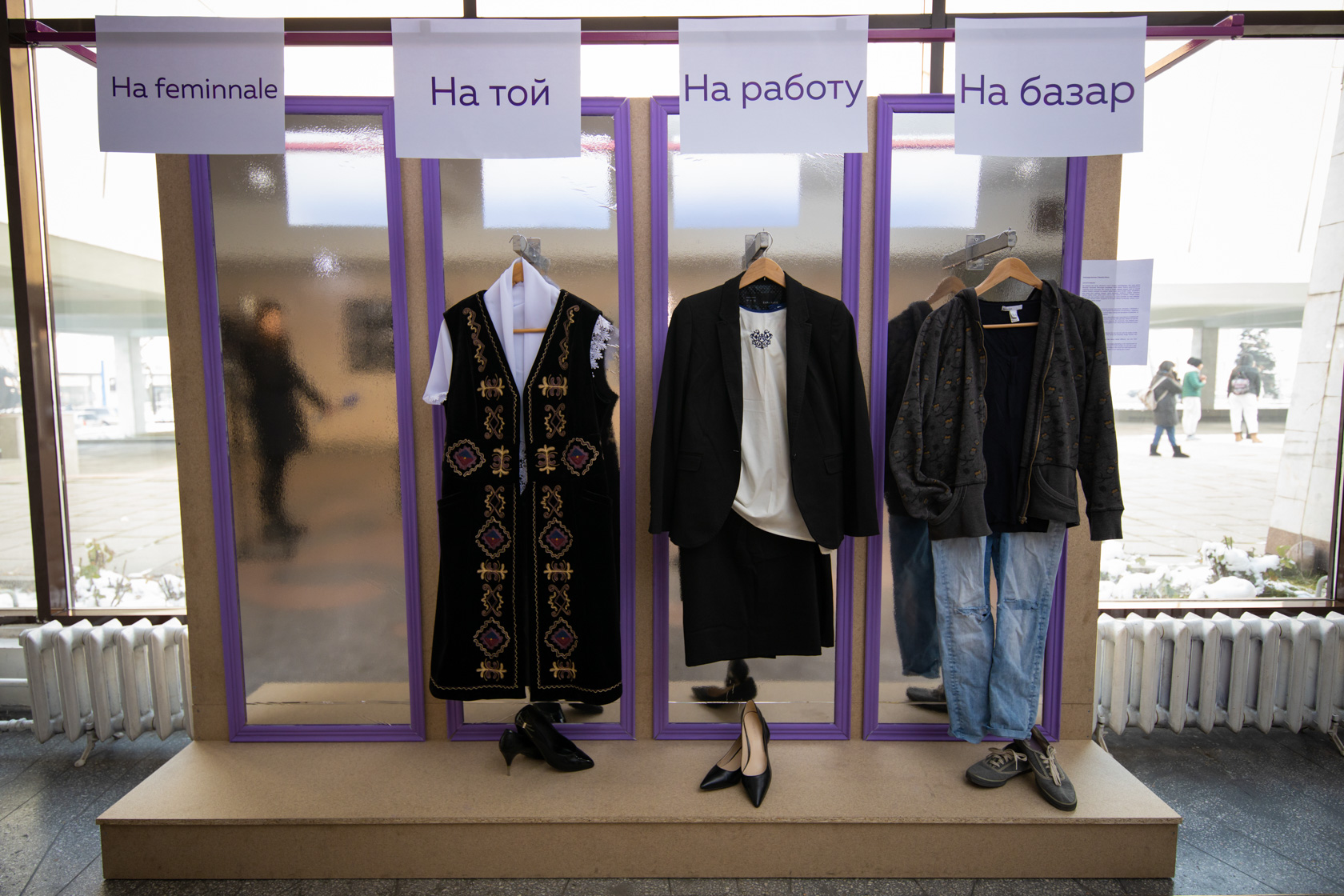
Photo by Anna and Rustem Iliyasov
Background information
On November 28, the contemporary art exhibition Feminnale opened at the National Museum of Fine Arts named after Gapar Aitiyev in Bishkek. It is the first major feminist exhibition in the history of the Republic. The exhibition is dedicated to the memory of 17 women who died in a fire at a printing house in the north of Moscow; 14 of them were labor migrants from Kyrgyzstan. There were young women and mothers of many children among the dead. The youngest victim of the tradegy, Nurai Jumadylova, was 17 years old. The exhibition was planned to last for 17 days — in memory of the 17 women.
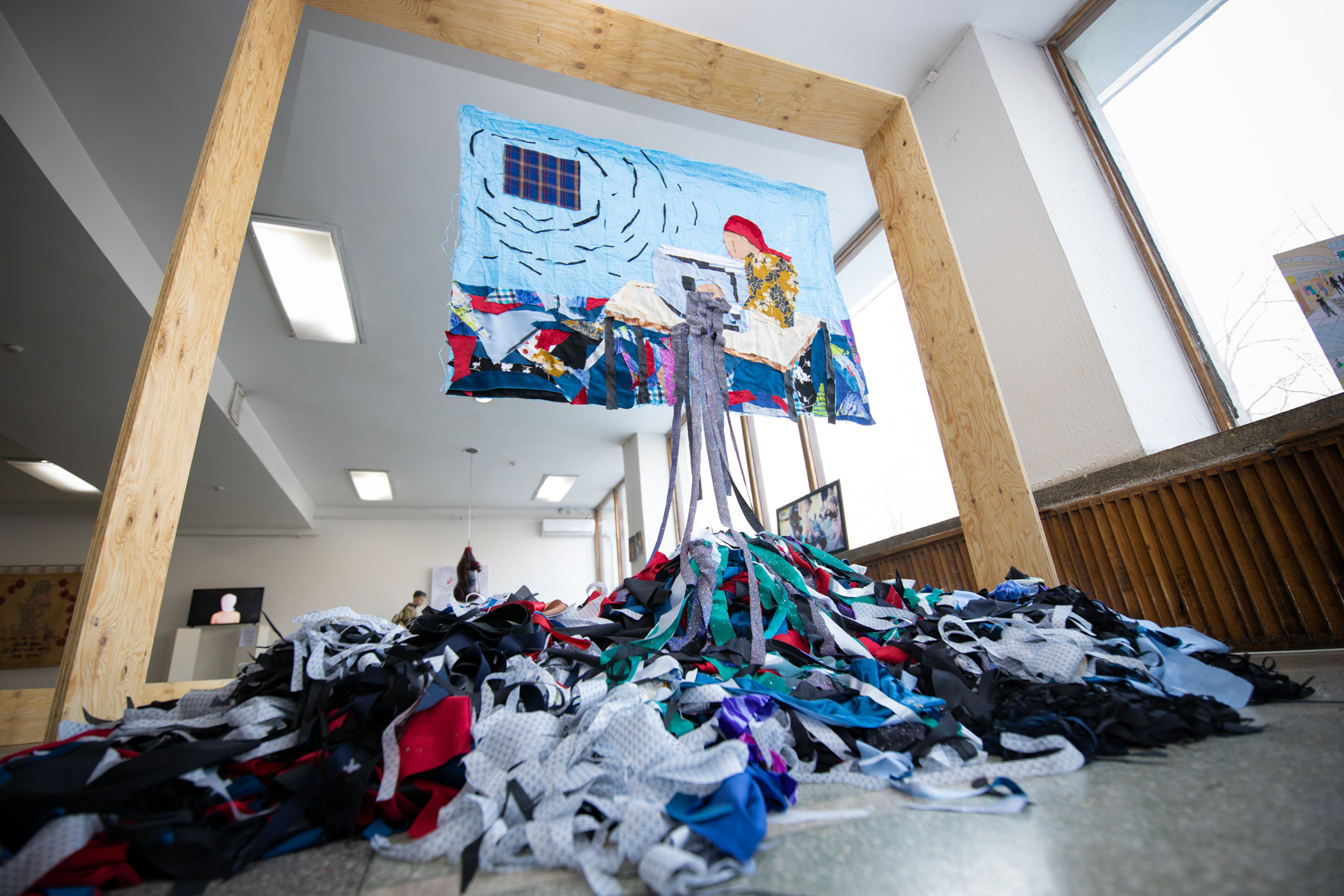
Photo by Anna and Rustem Iliyasov
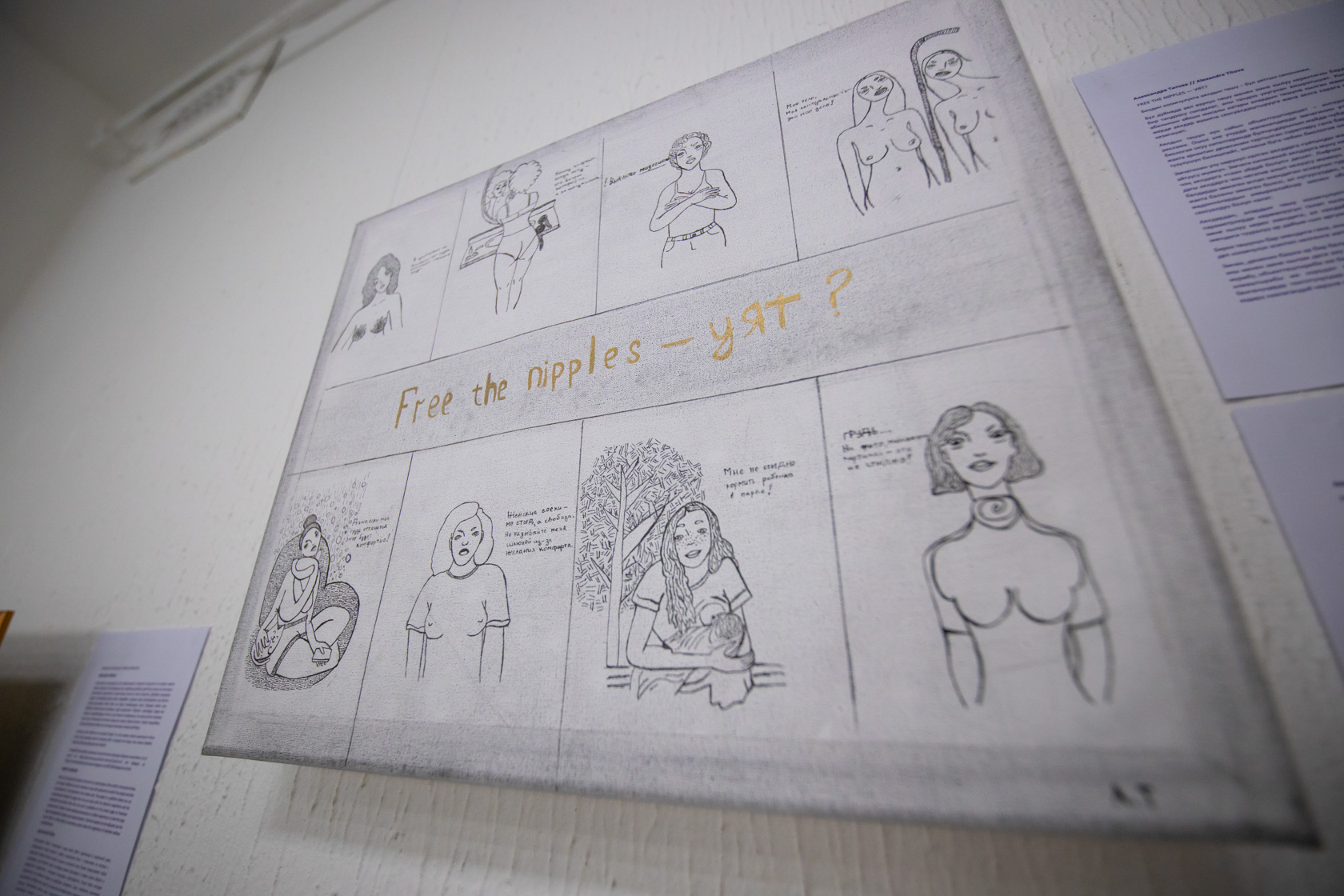
Photo by Anna and Rustem Iliyasov
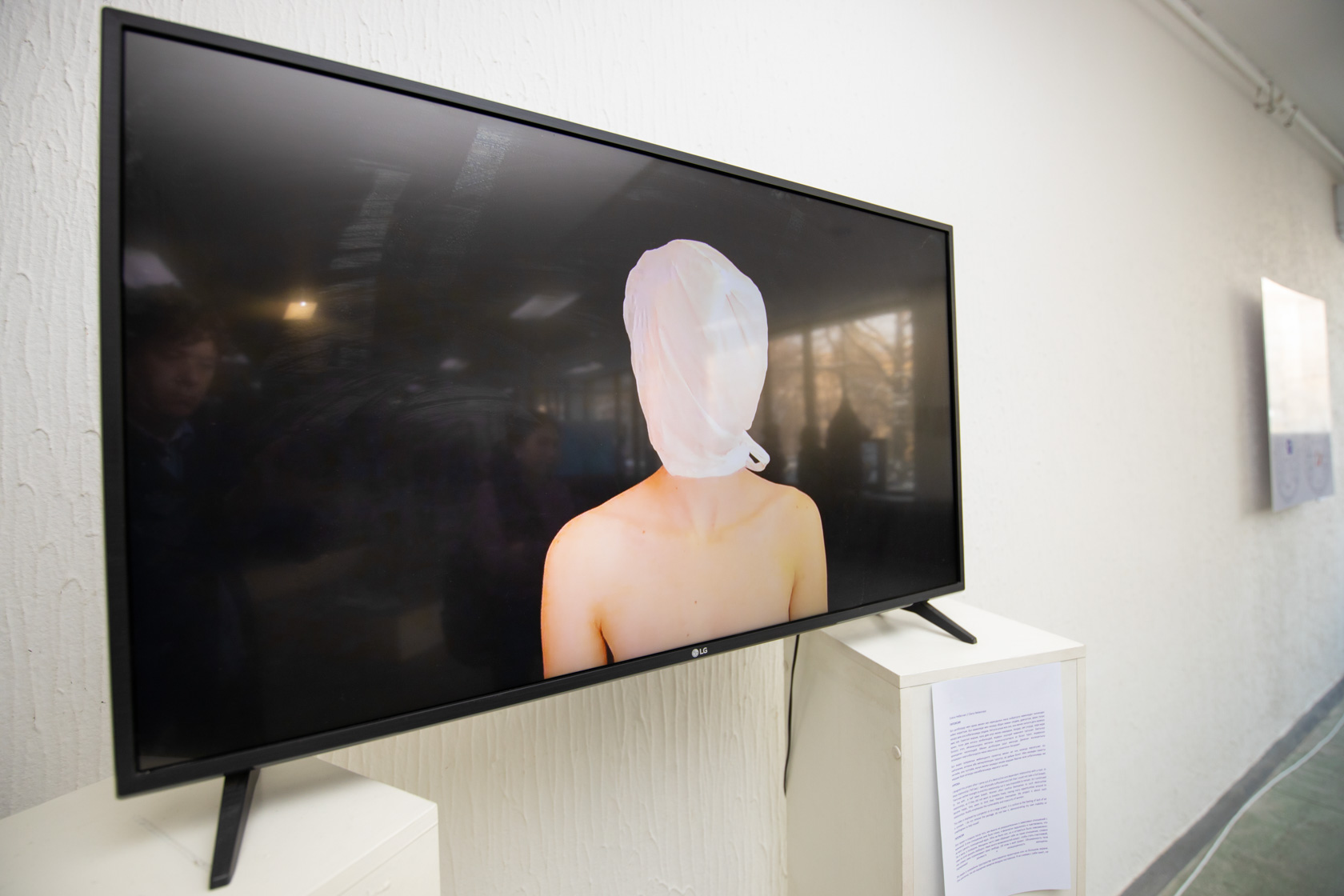
Photo by Anna and Rustem Iliyasov
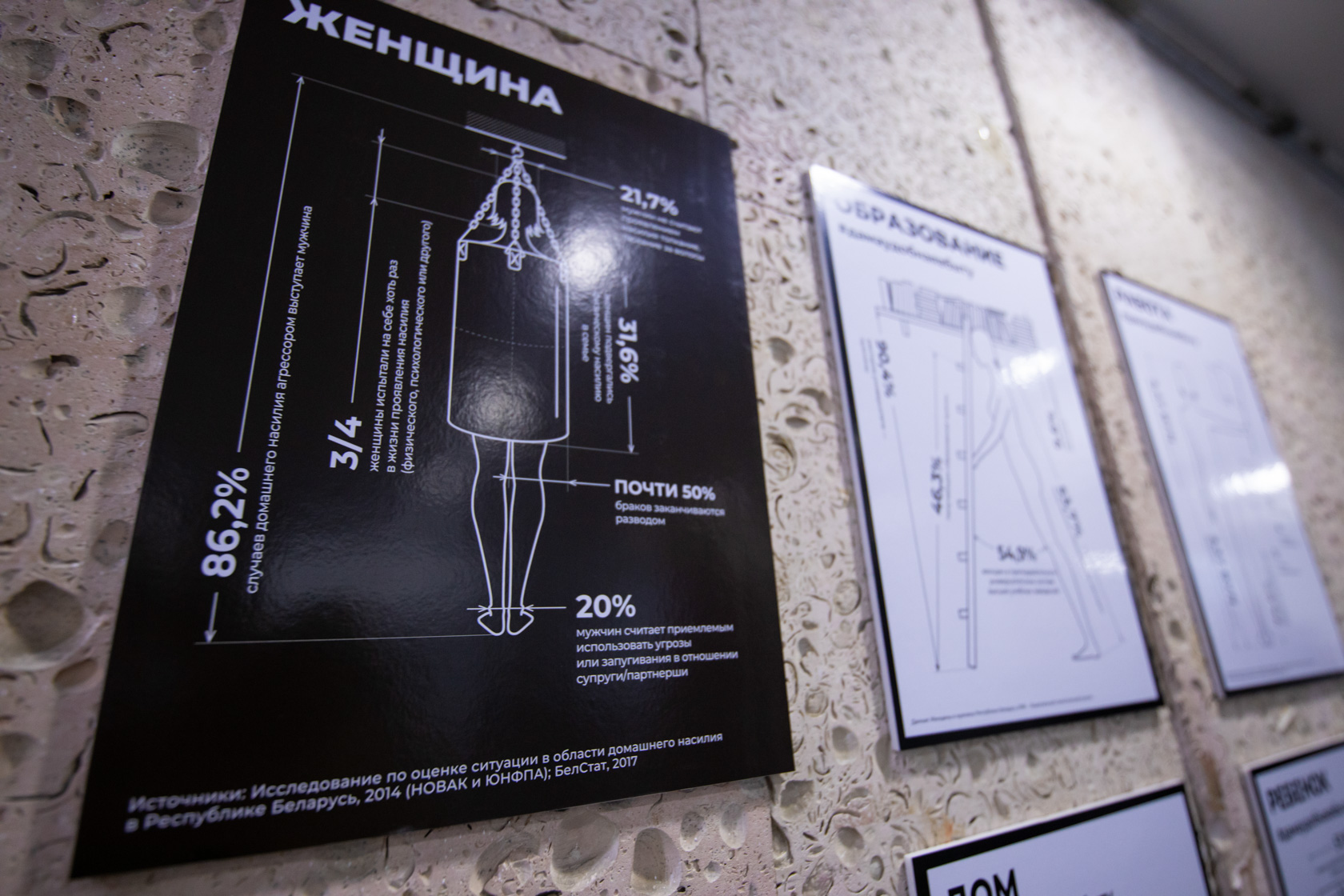
After the official opening, the art project team and participants, as well as the museum staff, were subjected to provocative acts, insults and threats, including threats of physical violence and murder.
The most active opponents of Feminnale are members of the reactionary ultra-right group Kyrk Choro. Previously, members of Kyrk Choro made aggressive statements, as well as provoked and attacked activists, participants and activists of the feminist movement.
Due to provocations and pressure from ultra-right forces, the director of the Museum of Fine Arts Mira Jangaracheva was forced to leave her post. Jangaracheva told the press that she quit in order to protect the museum staff and the organizers of Feminnale from threats and physical harm by the representatives of the “Kirk Choro” movement.
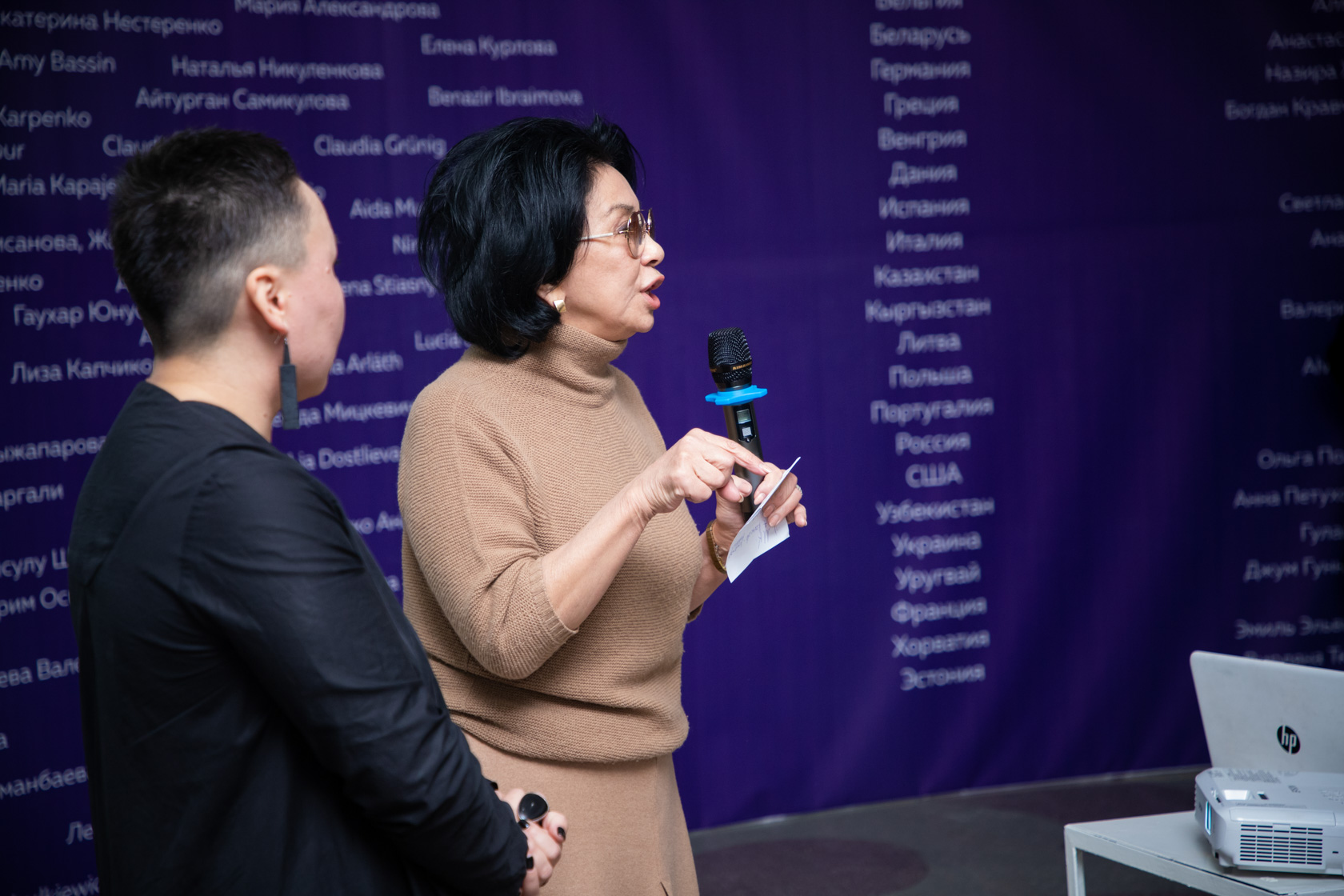
Photo by Anna and Rustem Iliyasov
According to Kloop, “Minister of Culture Azamat Jamankulov arrived at the museum on the morning of December 3 and ordered six works to be removed from the exhibition. Jamankulov claimed that a special commission had analyzed all the exhibits and decided to get rid of the ‘provocative paintings’. The minister refused to answer the question regarding the composition of the commission… When asked whether the ban on some of the exhibits can be regarded as censorship, Jamankulov responded, “If the organizers wanted to repeat the situation that took place at the opening event, we would not let it happen. You are free to see it as censorship”.
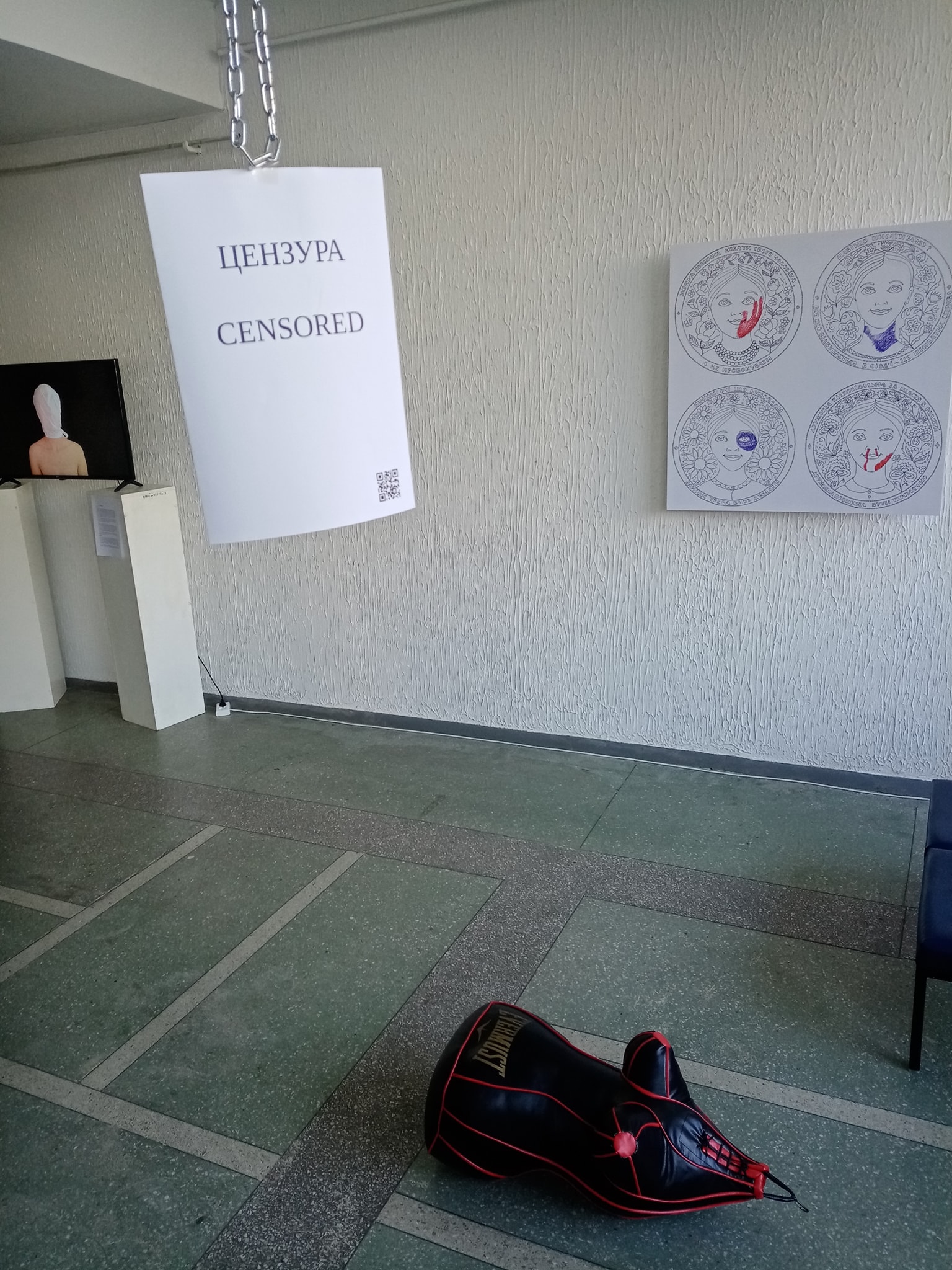
This statement by the Minister of Culture Azamat Jamankulov contradicts the Constitution of Kyrgyz Republic that prohibits censorship and protects every citizen’s right to freedom of expression and freedom of speech.
The exhibits from Feminnale subjected to censorship by the Ministry of Culture, were relocated to ololohaus co-working center.
A number of citizens of Kyrgyz Republic have publicly supported Altyn Kappalova and Feminnale, and made statements against censorship in art. Supporters include Roza Otunbayeva, ex-president of Kyrgyzstan and the only woman who served as president in the CIS countries; Bektur Iskender, journalist and co-founder of Kloop.kg; Ainura Amanaliyeva and Daniyar Amanaliyev, co-founders of ololo; Azim Azimov, producer, and many others.
